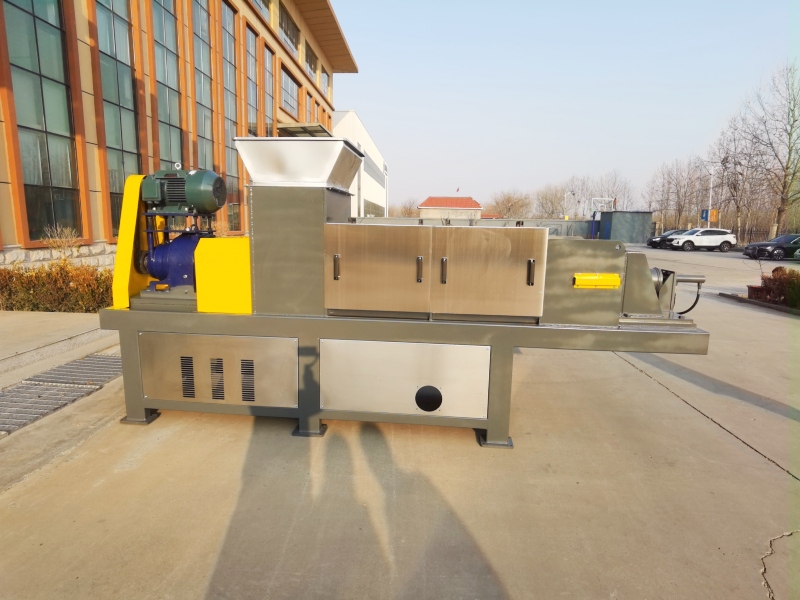
Vegetable waste is organic waste produced during vegetable processing and food production, usually including vegetable skins, leaves, roots and other parts. These vegetable residues are usually rich in water and nutrients, but if not treated effectively, they may cause environmental problems, such as difficulties in sewage treatment and the production of organic waste that is difficult to degrade. In order to make full use of the nutritional value of these vegetable residues while solving environmental problems, the spiral dehydrator has become a very effective processing tool. This article will introduce the characteristics of the spiral dehydrator for processing vegetable residues and its application in this field.
1. Efficient dehydration ability
Spiral dehydrators are known for their excellent dehydration capabilities. It uses a combination of rotating propellers and screens to quickly separate the moisture from vegetable residues through mechanical action. This efficient dehydration process can significantly reduce the moisture content in vegetable waste, thereby reducing the amount of waste after treatment. Efficient dehydration can also reduce the energy and resources required in subsequent processing, making the processing of vegetable residues more cost-effective.
2. Retain nutrients
Screw dehydrators retain the nutrients in vegetable waste better than traditional waste disposal methods. Since the dehydration process is completed through mechanical separation rather than heat treatment, the vitamins, minerals and other nutrients in the vegetable residue are not easily destroyed. This means that the processed vegetable residue can still be used in food processing or as feed, maximizing its nutritional value.
3. Environmental protection and energy saving
When processing vegetable residues, spiral dehydrators usually use a closed-loop water circulation system, which helps reduce the waste of water resources. In addition, because the dehydration process does not require extensive heating or chemical treatment, it reduces energy consumption and the use of chemicals, reducing the negative impact on the environment. This makes the spiral dehydrator an environmentally friendly and energy-saving method of processing vegetable waste.
4. Suitable for different types of vegetable residues
The design of the spiral dehydrator is flexible and can adapt to different types of vegetable residues. Whether it is root vegetable residues, leafy vegetable residues or other types of vegetable waste, the spiral dehydrator can handle it efficiently. This versatility makes spiral dehydrators ideal for a variety of vegetable processing plants and food manufacturers.
5. Simplify subsequent processing steps
Preliminary treatment via a spiral dehydrator can significantly reduce the complexity of subsequent processing steps. Products processed from vegetable pulp are generally drier and easier to store and transport. This makes waste handling and management easier and reduces disposal costs.
To sum up, the spiral dehydrator has excellent characteristics in processing vegetable residue. It dehydrates efficiently, retains nutrients, is environmentally friendly and energy-saving, has wide application, and can simplify subsequent processing steps. As concerns about environmental protection and resource utilization continue to increase, spiral dehydrators will play an increasingly important role in the field of vegetable residue treatment. By making full use of this technology, we can process vegetable waste more effectively, reduce waste, and achieve the goal of sustainable development.




If your company wants to establish a business relationship with us, please briefly describe the cooperation intention and send an email to:chuantaiscrewpress@gmail.com























































































![[list:title]](/static/upload/image/20240528/1716877114510915.jpg)